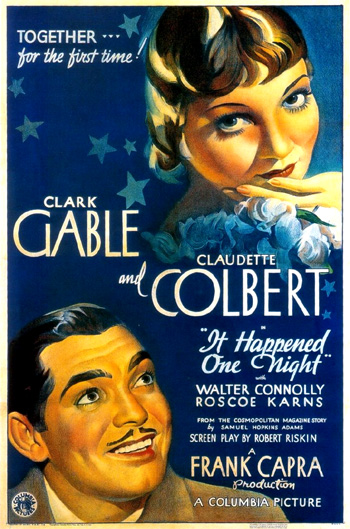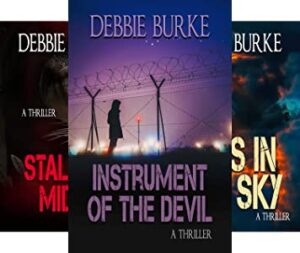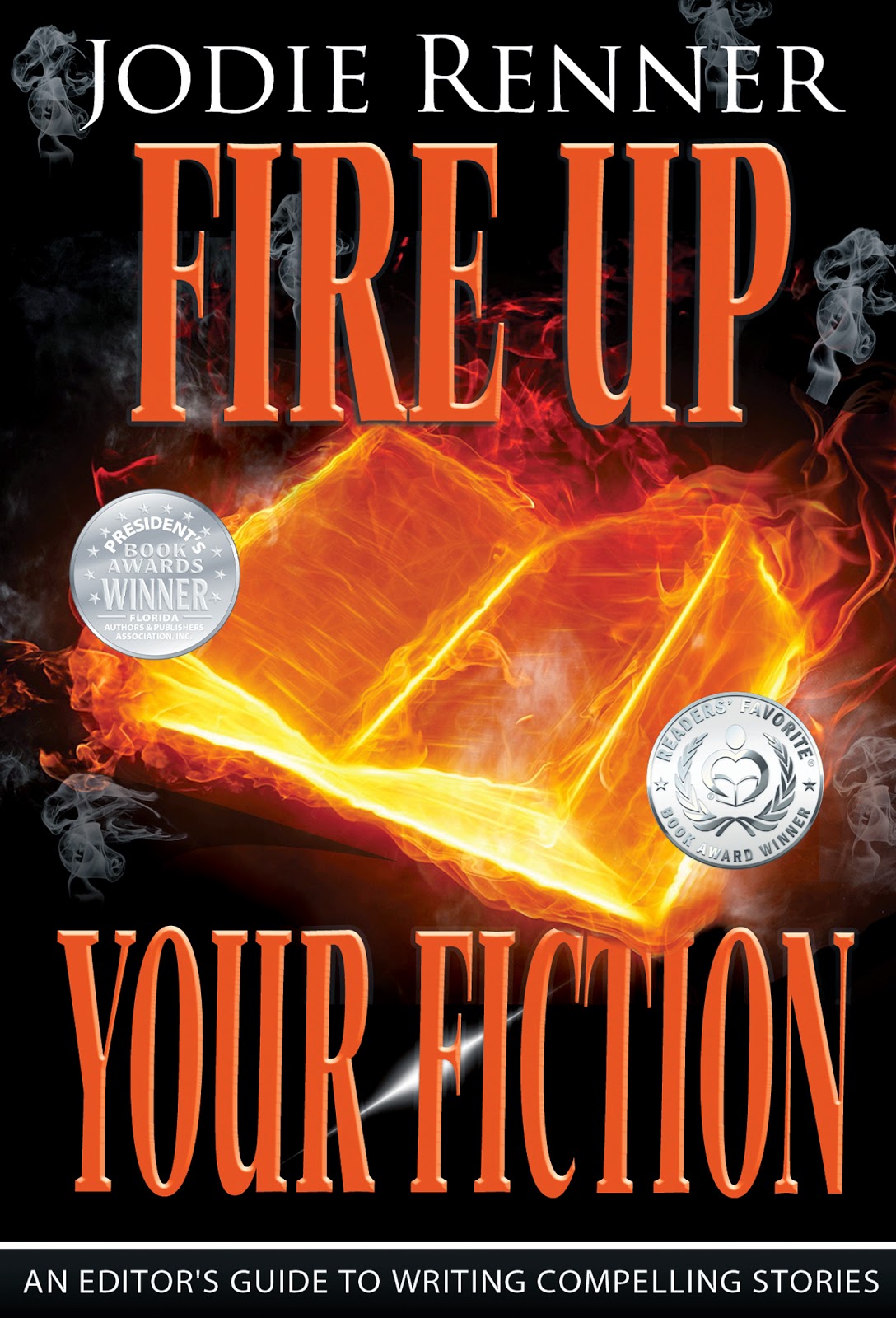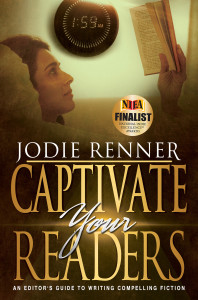by James Scott Bell
@jamesscottbell
 The sun was shining, the sky was blue (sorry, Elmore, for starting with the weather). So I decided to take a walk to Trader Joe’s. At checkout the pleasant young lady asked, “How’s your day going?”
The sun was shining, the sky was blue (sorry, Elmore, for starting with the weather). So I decided to take a walk to Trader Joe’s. At checkout the pleasant young lady asked, “How’s your day going?”
“Swell,” I said. “It’s such a nice day, I walked here.”
“You walked?”
“Only half a mile.”
“Nice. Any plans for the rest of your day?”
“I’m going to watch an old movie.”
“Oh, which one?”
“The Women.”
“I haven’t heard of that one.”
“1939. Norma Shearer, Joan Crawford, Roz Russell.”
She frowned. “Is it in black and white?”
“It is indeed.”
She pursed her lips.
I said, “Don’t you watch black and white movies?”
“Not really,” she said.
“Oh boy!” says I. “There are so many great movies waiting for you to see! You can start with Casablanca.”
“I’ve heard of that. I’ll have to check it out.”
Another pleasant young lady appeared to bag my items. “Check what out?” she said.
“An old movie,” the checker said.
“Casablanca,” I said.
“Oh, yeah,” said the bagger.
“You’ve seen it?”
She shook her head. “But I’ve heard about it.”
“You both need to see Casablanca.”
“I will,” said the checker with a smile. The bagger nodded.
“My work here is done,” I said.
It is my work indeed to extol the virtues of classic movies for entertainment, edification, and writing instruction. When I started teaching over 25 years ago and would mention Casablanca, everybody had seen it. Not these days. When I speak to young writers now, most of them have not seen it. Which blows my mind!
Yes, Virginia, there are black and white movies you must see if you wish to write (and now I wonder how many youngsters know where Yes, Virginia comes from. But I wonder a great many things these days).
 Today I want to talk about another pure classic every writer, especially romance writers, should know—Frank Capra’s 1934 mega-hit It Happened One Night. Arguably the first true rom-com, the movie swept the major Oscars: Picture, Director, Actor, Actress, Screenplay.
Today I want to talk about another pure classic every writer, especially romance writers, should know—Frank Capra’s 1934 mega-hit It Happened One Night. Arguably the first true rom-com, the movie swept the major Oscars: Picture, Director, Actor, Actress, Screenplay.
And it almost didn’t get made.
Capra tells the story in his autobiography, The Name Above the Title. The short version is that no one but Capra and his screenwriter, Robert Riskin, wanted to make the movie, originally titled Night Bus. Capra had to fight the mercurial Harry Cohn of Columbia Pictures to get it done. And potential stars kept turning it down.
MGM owed Cohn one of their stars for a picture, because of a previous deal. For Night Bus, Louis B. Mayer sent him Clark Gable, partly to “punish” Gable for being difficult over salary. It was “punishment” because Columbia was considered far below MGM in prestige. Which is why Gable showed up to his first meeting with Capra three sheets to the wind. He had no idea this was going to be life changing for him.
Finding the lead actress was more difficult. After several turn downs, Capra went to his last resort. He had worked with Claudette Colbert before, but the movie turned out to be a stinker. She wasn’t wild about working with Capra again, but said she’d do it if she got double her usual salary and the shooting would be finished in four weeks so as not to interrupt a planned vacation. She thought that would be a deal breaker. But Capra accepted. A shooting date was set.
But there was another problem, the script itself. Capra and Riskin had laughed a lot as they wrote the first draft of Night Bus. But their enthusiasm wasn’t shared by anyone else. It had some funny bits, but they were too close to the material to see the gaping hole.
Which is when Capra showed it to a “beta reader,” his friend Myles Connolly.
The Golden Advice That Made a Hit
Myles Connolly was a “hard-boiled newspaper reporter” turned Hollywood scribe. He was especially adept at seeing what was wrong in other scripts. He told Capra:
Frank, it’s easy to see why performers turn down your script. Sure, you’ve got some good comedy routines, but your leading characters are non-sympathetic, non-interest grabbing. People can’t identify with them. Take your girl. A spoiled brat, a rich heiress. How many spoiled heiresses do people know? And how many give a damn what happens to them? She’s a zero. Take your leading man. A long-haired, flowing-tie, Greenwich Village painter. I don’t know any vagabond painters and I doubt if you do. And a man I don’t know is a man I’m apt to dislike, especially if he has no ideals, no dragons to slay. Another zero. And when zero meets zero you’ve got zero interest.
He went on to suggest making the heiress want something to make her more sympathetic, like getting away from her controlling father. And make the man a tough, crusading reporter on the outs with his pig-headed editor and needing a story. Boom! Capra and Riskin knew he was right, and set about re-writing the script.
Retitled It Happened One Night, Capra shot the movie in the allotted four weeks. And the rest, as they say, is movie history. Next week I’ll unpack it.
For now, two takeaways. First, for your lead character, you must create an immediate rooting interest, something that hooks the reader and gets them on the character’s side, even if the character is flawed at the beginning. An opening objective. Scarlett is a brat, but she’s also in love with Ashley. [Tip: We always root for people in love, at least for a while.] So we’ll follow her along for a time to see if she gets him. We’ll also see that she has an inner strength [Tip: We always root for people fighting long odds] and hope that moxie might turn Scarlett into a better version of herself.
Tip: Ask, What does my character yearn for before the story begins?
The other takeaway is the value of a trusted editor or beta reader. I’ve been lucky over the years to work with some fantastic editors who made me a better writer, and with some priceless beta readers (starting with Mrs. B) who always see things I don’t. This is not a profession that rewards pride or narcissism, so don’t park your keister in either place.
Myles Connolly saved Night Bus from bombing. Had it done so, we might never have had all the great Capra movies to follow, or the roles where a “new” Gable really strutted his stuff—from San Francisco to Gone With the Wind, all the way to Teacher’s Pet.
1. Do you consider your lead character’s yearning before the story begins?
2. Do you have a trusted editor or beta reader(s)? How have they helped you? What advice can you give to a writer who wants to find a good one?




 Deep Fake Double Down
Deep Fake Double Down







